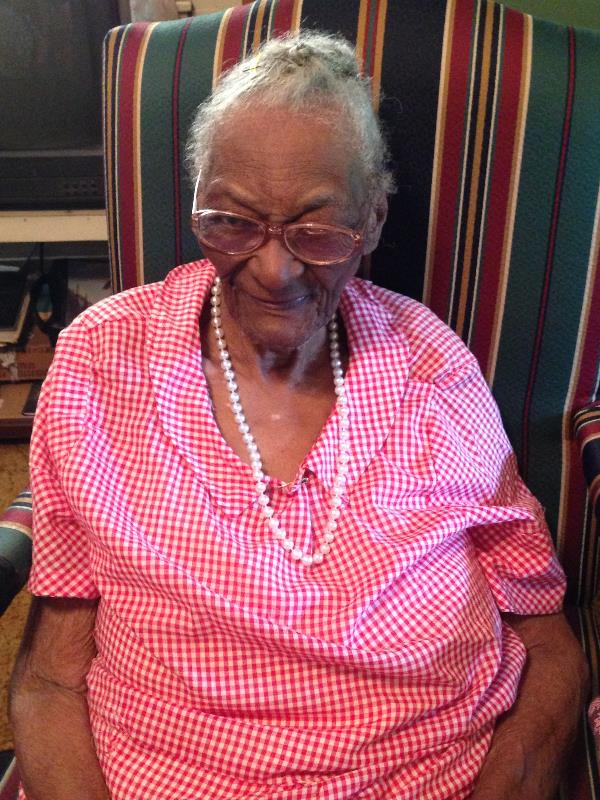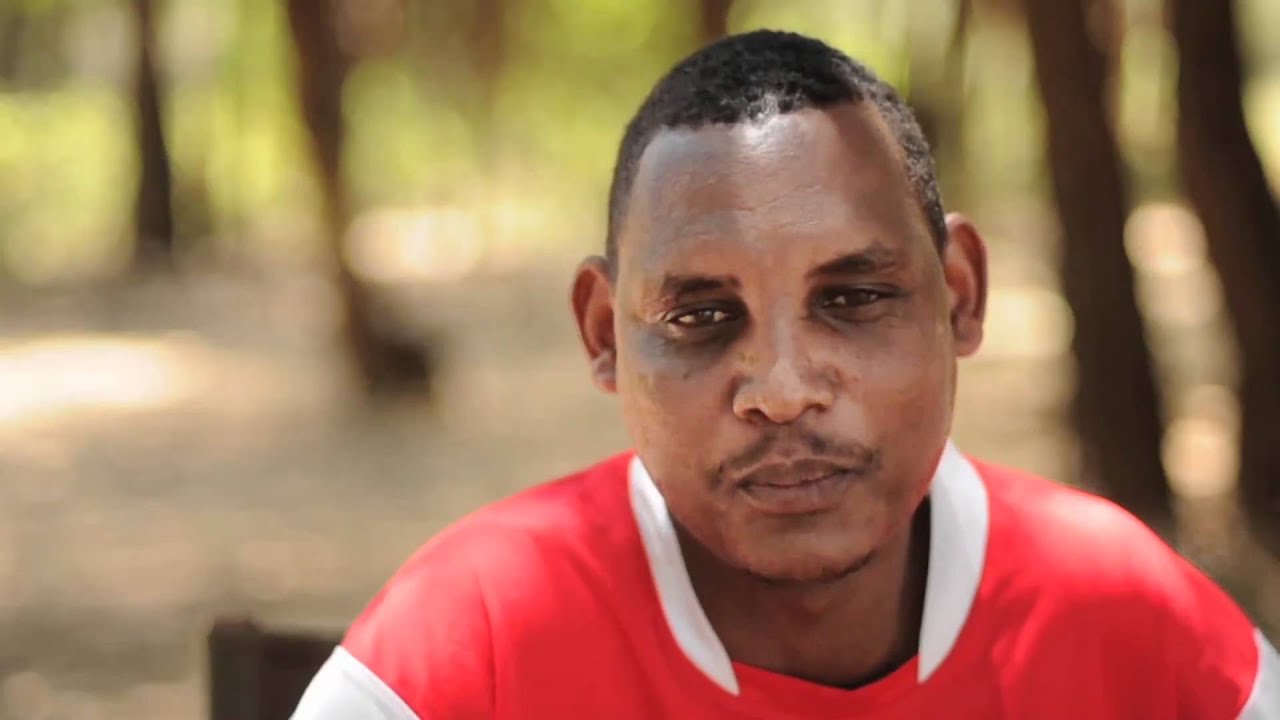filter posts:
Date
Faith, Not Doubt, Opens Hearts and Homes
 Lydia came to faith in Jesus Christ when she heard the Gospel preached by Paul, and the Lord opened her heart. She did not come to believe by doubling down on doubt. Zaccheus came to faith in Jesus Christ when the Nazarene invited the vertically-challenged tax collector to clamber down the sycamore and let the Lord come to his house. He did not stumble through doubt-clouds and somehow find his way to truth. Nicodemus visited Jesus at night, not because he doubted the veracity of Jesus’ claims, but because he wanted to understand them. Even Thomas, made famous by first doubting the rest of the disciples’ claims that Jesus was alive, did not come to believe because of his doubt. He was kept from faith for a while because of it, and when he finally did believe, he was chided by the Lord with these words: “Have you believed because you have seen Me? Blessed are those who have not seen and yet have believed.”
Lydia came to faith in Jesus Christ when she heard the Gospel preached by Paul, and the Lord opened her heart. She did not come to believe by doubling down on doubt. Zaccheus came to faith in Jesus Christ when the Nazarene invited the vertically-challenged tax collector to clamber down the sycamore and let the Lord come to his house. He did not stumble through doubt-clouds and somehow find his way to truth. Nicodemus visited Jesus at night, not because he doubted the veracity of Jesus’ claims, but because he wanted to understand them. Even Thomas, made famous by first doubting the rest of the disciples’ claims that Jesus was alive, did not come to believe because of his doubt. He was kept from faith for a while because of it, and when he finally did believe, he was chided by the Lord with these words: “Have you believed because you have seen Me? Blessed are those who have not seen and yet have believed.”
Do you know what Lydia did when she became a Christian? Lydia opened her home. I love that. The Lord opened her heart. And Lydia opened her home. She did not go to seminary. She did not start a ministry. She did not go on a preaching crusade. Not that any of those are bad. But Lydia opened her home. Edith Schaeffer said once, “Every Christian home is meant to have a door that swings open.”
I believe it’s one of the first and finest fruits of the Father’s followers. He opens our hearts. We open our homes. Jesus said to Zaccheus, “Come down, I’m coming over to your house for supper.” When Levi, also called Matthew, the tax collector met Jesus, what was the first thing he did? He had a party and invited all of his tax collector friends over. He opened his home to Jesus and a big pile of lost people who needed to meet the Savior.
There’s the story that is told of a South Carolina judge, Alexander Sanders, whose wife called him home one day because something terrible had happened. Their little girl’s turtle had died, and she was absolutely inconsolable. As a three-year-old, she just didn’t understand the ways of life and death. The judge offered to buy her another one. “No! It wouldn’t be the same one.” He tried everything, and finally said, “Well, we have to have a funeral for Carl.” She looked puzzled, so the judge told her a funeral is where they invite all of her little friends over and have ice cream and cake and lemonade and play outside and celebrate the life of her turtle. That did it. She was very excited about that, and so she and her father started to plan the party and who to invite. Then it happened. The turtle stuck his legs out. Then his head. The father was relieved and knew his daughter would be, too. But when he looked at her expecting to see tears of joy, she said, “Daddy, let’s kill it.” What’s the moral to that story? It’s not, “kill turtles.” No. The moral is, “everybody loves a party.” So, have one. Invite doubters, skeptics, and others who don’t know Jesus.
The answer, my friend, is not blowing in the wind. The answer is written in God’s Word. Don’t celebrate doubt. Investigate the truth. Read the Bible. Talk to someone who knows Jesus. Come to my house for dinner. We would love to meet you and tell you why we believe.
August 30, 2020
Some Encouragement to Pray
 In his lifetime in the 18th century, John Wesley traveled more than 250,000 miles on horseback, preached an average of 2 or 3 times a day, totaling more than 40,000 sermons. One of his favorite texts was John 3:7 where Jesus said, “You must be born again.” Wesley was often asked, “Why do you preach so much that ‘you must be born again?’” Wesley replied, “Because you must be born again.”
In his lifetime in the 18th century, John Wesley traveled more than 250,000 miles on horseback, preached an average of 2 or 3 times a day, totaling more than 40,000 sermons. One of his favorite texts was John 3:7 where Jesus said, “You must be born again.” Wesley was often asked, “Why do you preach so much that ‘you must be born again?’” Wesley replied, “Because you must be born again.”
Many of the Psalms were written by David. I would imagine that in his lifetime someone said, “Why, David, do you talk so much about our need for prayer?” David may have replied, “Because we need to pray.” “But, why do we need to pray, David?” David’s answer: “Because we need God.”
Paul Miller writes, “If you are not praying, then you are quietly confident that time, money, and talent are all you need in life. You’ll always be a little too tired, a little too busy. But if, like Jesus, you realize you can’t do life on your own, then no matter how busy, no matter how tired you are, you will find the time to pray.” I am writing today to those who lack such confidence and realize that without God’s help every day, your life is a mess.
First, start your day with the Lord as often as you can. This will require that you get blanket victory, that you say “no” to your flesh and get out of bed. If your daily routine includes stumbling to the shower and into the car, wolfing down breakfast and putting on your makeup or shaving as you rush down the road to work, then inserting time alone with God will produce a great shock to your system. You will have to get up earlier, which means you will have to go to bed earlier. You can do it.
Second, learn to cry out to God with your whole heart. William Cowper said, “As a man cries most loudly when he cries with his mouth opened, so a man prays most effectually when he prays with his whole heart.” That means it is probably best to be alone where we can talk to God without fear of being overheard. Find a place in the house where you can shut the door and pray. Wholehearted prayer is also honest prayer. We are God’s children and a child says whatever is on his mind. That’s one thing that endears us to Peter, and I think made Jesus love him so much. God desires truth in the inward parts. “I cry out with my whole heart” means that I don’t play games and try to sound religious in my prayers, but instead I pour out my heart to Him so that God hears from my lips what He already knows is in my heart.
Third, pray biblically. Read the Bible and pray God’s words back to Him. Let the Scripture train your mind and heart how to speak and listen to God. Read some of Paul’s great prayers for the churches he started and pray those same prayers with all your heart.
Finally, don’t give up. It is always too early to quit. Prayer may start as a discipline but will end as a delight for those who persevere in their desire to know the Father.
August 23, 2020
How Not to Be Your Own Selfish Pig
 Little Johnny is never told “No” by his parents. They are afraid to damage his little self-esteem. Johnny grows up believing he can have what he wants when he wants it. His wife and children suffer. Little Susie learns to be a skillful manipulator of her parents’ emotions as a toddler, honing the skill to perfection as a teen. She grows up to wreak havoc on a series of churches, pushing for her way or the highway. The churches suffer. Little Bobby is told often by his parents that he is smarter than all of the other kids at school. He learns how to use his tongue and quick intellect to control others and when confronted, his verbal skills enable him to make his accusers feel like they are the ones with the problem. His wife and children and every relationship in his life suffers.
Little Johnny is never told “No” by his parents. They are afraid to damage his little self-esteem. Johnny grows up believing he can have what he wants when he wants it. His wife and children suffer. Little Susie learns to be a skillful manipulator of her parents’ emotions as a toddler, honing the skill to perfection as a teen. She grows up to wreak havoc on a series of churches, pushing for her way or the highway. The churches suffer. Little Bobby is told often by his parents that he is smarter than all of the other kids at school. He learns how to use his tongue and quick intellect to control others and when confronted, his verbal skills enable him to make his accusers feel like they are the ones with the problem. His wife and children and every relationship in his life suffers.
The Bible says of our sin, “All we like sheep have gone astray; we have turned—every one—to his own way…” That’s one definition of sin. Going our own way. It is part of our sinful human nature to want to do what pleases us, not what pleases God. It is easily identified in the toddler who knocks over his brother’s Lego tower simply because that’s what he wants to do at the time. Or in the ten-year-old who disobeys her parents and gets on Facebook (or worse) after Mom and Dad have gone to bed. Or in the fifteen-year-old who cheats on a test in class. Those are all serious expressions of what it means to sin. In each case, the child or young adult is putting aside what his parents have taught him, or at least what the Lord has written on his heart, which our conscience bears witness to. In each of those cases, a wise parent will step in and disciple, yes, discipline his child. Why would a parent choose not to discipline his or her children? It may be because that parent is pursuing his own sin agenda and would feel like a hypocrite if he were to chasten his child. Or it may be because she is afraid to confront her child, not sure how that will go and horrified that it could even lead to the child not liking her for a day or two. It may simply be because the parents choose the façade of “peace and quiet” in the home rather than the hard work of training children.
What happens when parents do not disciple their children by dealing lovingly but firmly with sin? A downward spiral is set into motion. Sin is like a fire. It is not satisfied with a lie here or a selfish thought there. Given free reign, sin will consume every area of your life. Not only that, but I have to be completely honest here. Sin makes people stupid. I’ve seen the reality of what the Bible means when it says, “For where envy and self-seeking exist, confusion and every evil thing are there.” Sin blinds and brings confusion. Clear thinking becomes muddled, then erratic, even evil and dangerous.
There’s hope. The bad news that we all have gone astray and each one of us has turned to his own way is not all the news. The rest of that verse says, “the Lord has laid on Him (Jesus) the iniquity of us all.”
We don’t have to stay in the downward spiral. We don’t have to be stuck on stupid. We don’t have to destroy our marriages and families.
God has made a way for us to not be our own selfish pig. We can start today to say no to the pig and yes to Jesus and his word and will for us.
August 17, 2020
Those Who Run from Suffering often Cause It
 The Bible clearly teaches that more and more people will grow less and less enamored with the preaching of the Word of God. They will not put up with it. Instead, they will “accumulate for themselves teachers who will suit their own passions.” As a result, they will turn away from truth and wander off into myths. They prefer pecan pie to Brussels sprouts. And who doesn’t? If the question is which is more fun to eat, then the pie wins hands down every time. But if the question is, which will make you stronger and maybe help you live longer, then there is no contest. Brussels win. Which is more fun? An episode of your favorite sit-com? Or listening to a sermon? Well, probably the sit-com. Which will help you more to grow in your faith? Hopefully there is no contest.
The Bible clearly teaches that more and more people will grow less and less enamored with the preaching of the Word of God. They will not put up with it. Instead, they will “accumulate for themselves teachers who will suit their own passions.” As a result, they will turn away from truth and wander off into myths. They prefer pecan pie to Brussels sprouts. And who doesn’t? If the question is which is more fun to eat, then the pie wins hands down every time. But if the question is, which will make you stronger and maybe help you live longer, then there is no contest. Brussels win. Which is more fun? An episode of your favorite sit-com? Or listening to a sermon? Well, probably the sit-com. Which will help you more to grow in your faith? Hopefully there is no contest.
Now the point is not that we should never eat pecan pie or watch TV shows. But if we find our hearts longing for more and more sweets and more and more mindless entertainment, there is a problem. If we find ourselves reacting to anyone who preaches the Word to us with authority, there is a problem. Imagine waking up one morning, looking in the mirror, only to be horrified to see a huge growth in the center of your forehead. That would be a problem, right? But imagine that you then start asking everyone you can find to tell you what they think about your protuberance, and the first ten say you should get medical help immediately. Imagine that you just ignore the first ten and keep asking people what they think until you finally find a woman who says, “What growth? I don’t see a problem. In fact, I think you are wonderful just the way you are. And, hey, mind if I hang my purse there?” And imagine that you, unicorn-boy, smile and nod and think to yourself, “I finally found someone who understands me and will tell me what I want to hear.” That’s a grotesque illustration of what Paul is talking about in 2 Timothy 4. There are growing numbers of people who reject truth-tellers and look for teachers who will tickle their ears and tell them what they want to hear, even if what they want to hear has deadly consequences. Paul then connects this teaching with a few commands, one of which is, “endure suffering.” That made me wonder if perhaps one of the main reasons people reject the truth and run headlong into lies and myths is because they don’t want to suffer. The end result, however, is even more suffering.
It occurred to me last week as I was meditating on this Scripture, and I believe this is from the Lord, that the one who does not endure suffering will most likely be the source of suffering for others. Think of John Mark as an example, a young man who bailed out on Paul and Barnabas during the first missionary journey, presumably because the suffering was more than he was willing to endure. He left and went home to Mama, leaving the other two to soldier on without his help. As a result, Paul and Barnabas had a falling out when they disagreed later about whether John Mark should be taken with them on their second journey. Their relationship suffered because John Mark had refused to endure suffering himself.
Run to the truth of biblical preaching and avoid the myth-traps.
Endure suffering and spare yourself and those whom you love much pain.
August 10, 2020
He Looked Past my Weakness and Chose Me Anyway
 I remember it like it was yesterday. It is my 4th grade class with Mrs. Wade, and time for recess. Every day, it is the same. When the teacher announces recess, I am at once fearful and elated, excited and filled with dread at the same time. Why? I am excited and elated because I get to go outside and play, one of my passions even to this day. I am fearful and filled with dread because I am one of the smallest boys in the class, and I know that recess means kickball. I know that kickball means that the two biggest boys in the class will announce that they are captains and start choosing their teams. The girls will stand off to the side and giggle as the boys make their selections from among the rest of us young pre-pubescent males who are standing there, trying to look tough and athletic. Not me. I am standing behind a row of taller boys and occupying my full attention by gazing at my right foot. Anyone who is observing this whole scene would have to write in his notes: “The short, skinny kid, Fox, is staring at his right tennis shoe like it’s his job. What is going on with him?”
I remember it like it was yesterday. It is my 4th grade class with Mrs. Wade, and time for recess. Every day, it is the same. When the teacher announces recess, I am at once fearful and elated, excited and filled with dread at the same time. Why? I am excited and elated because I get to go outside and play, one of my passions even to this day. I am fearful and filled with dread because I am one of the smallest boys in the class, and I know that recess means kickball. I know that kickball means that the two biggest boys in the class will announce that they are captains and start choosing their teams. The girls will stand off to the side and giggle as the boys make their selections from among the rest of us young pre-pubescent males who are standing there, trying to look tough and athletic. Not me. I am standing behind a row of taller boys and occupying my full attention by gazing at my right foot. Anyone who is observing this whole scene would have to write in his notes: “The short, skinny kid, Fox, is staring at his right tennis shoe like it’s his job. What is going on with him?”
What is going on is that I know what will happen. Every single boy on that field will be chosen until there are two left, me and this other little kid named Albert. Then the two self-appointed captains will argue over who gets me and who gets Albert. The girls on the sideline, in the meantime, are whispering to each other and giggling into their hands. I am dying. The selection process is finally over, and the game begins, and I can relax a little, and just try to not make my team lose.
When Jesus came to his hometown to preach for the first time after his ministry had begun, he opened the Old Testament to Isaiah and read a passage about the coming Messiah that included this statement: “He has anointed me to preach the gospel to the poor.” This is not an economic designation, this word for ‘poor.’ Rather, it is a word that describes “those who for any number of reasons were relegated to positions outside the boundaries of God’s people.” Jesus came to preach to people who knew they were outside of God’s boundaries (all of us are) and who knew they were lost and needed a Savior (all of us do). He came to reach the human race, which comes in many colors, many nationalities, many socio-economic backgrounds, and he alone can do that. He alone has the answers we need for origin, identity, and purpose. He alone has answers for suffering and sin and salvation. Rebecca McLaughlin writes in her book, Confronting Christianity: 12 Hard Questions for the World’s Largest Religion, “Jesus claims rule over all of heaven and earth. He presents himself not as one possible path to God, but as God himself. We may choose to disbelieve him. But he cannot be one truth among many. He has not left us that option.”
I am back on the kickball field, and I expect to be picked last. In terms of size and skill, I am poor, outside the boundaries of those who would be included in the athletic category. And then one of the captains overlooks a whole row of bigger, stronger boys who are smug in their expectation of being chosen. He finds me through the crowd, standing on the back row, looking at my feet, preparing myself to deal with the shame of being picked last or next to last. And he says, “I’ll take Mark.”
Of course, it never happened to me in kickball, I still got picked last, but it did happen to me with the Lord. God looked past all my sinful pride, rebellion, and spiritual poverty and said, “I’ll take Mark.”
He offers good news to the poor, to the least likely, to the lowly. He opens his arms to people like you and me.
August 3, 2020
How do we make important decisions?
 A young lady was sunbathing on the beach when a little boy in his swimming trunks, carrying a towel, came up to her and asked, “Do you believe in God?” She was surprised by the question, but she replied, “Why, yes, I do.”
A young lady was sunbathing on the beach when a little boy in his swimming trunks, carrying a towel, came up to her and asked, “Do you believe in God?” She was surprised by the question, but she replied, “Why, yes, I do.”
Then he asked her, “Do you go to church every Sunday?”
Again, her answer was, “Yes!”
He then asked: “Do you read your Bible and pray every day?”
Again she said, “Yes,” but now her curiosity was very much aroused.
The little boy sighed with relief and said, “Will you hold my money while I go swimming?”
Now there’s a wise little boy. He wants to go swimming, but he also wants to keep his money. We see him struggle through the process of making a decision about whether this stranger on the beach is a truth-teller. That’s what it came down to, for him: truth. It wasn’t enough for him that the woman claimed to believe in God. He was looking for proof, for fruit. His cross-examination was his way of trying to find the truth. That’s crucial for every one of us in every decision we make. What is the truth? And is there supporting evidence for that truth?
There is a great model for us in Scripture for how to make decisions. The almost-leaders of the nearly-born first church had a meeting as they waited for God to send the Holy Spirit. They were faced with an important decision they had to make: how should they replace Judas Iscariot who had betrayed Jesus and then hanged himself? Here’s what they did.
First, they looked to Scripture. They believed the Word was clear that Judas had to be replaced so the eleven would again become the Twelve. This twelve would provide a foundation for the new church, with Jesus as the cornerstone.
Second, they used their common sense in order to put forward two candidates. If this man was going to replace Judas and be like the rest of them, he had to have the same qualifications they did. He had to have been with Jesus from his baptism through to his ascension. Maybe these two candidates were the only pair among the 120 who fulfilled the qualifications. Maybe there were many men who met the qualifications, but the eleven believed these two were the best candidates. I would love to know, but we are not told. So, they chose two, Joseph and Matthias.
Third, they asked Jesus to decide. That’s essentially what they did, because they cast lots, praying, “You, Lord, who know the hearts of all, show which one of these two you have chosen…” Now before you run out and buy some lots to cast, there are a couple of things you should know. One, we have no idea, really, what lots were. I think you could substitute a pair of dice here and be fine. But there’s something else you need to know. There is no record of the leaders of the church ever again making a decision by ‘casting lots.’ The reason is simple: God sent the Holy Spirit to dwell in His people, to teach us, to give us assurance of salvation, and to lead us.
How do we make important decisions, then? We turn to the Scriptures, which is the truth. We use common sense. We pray. And by the way, you can’t skip the first and third and think you can rely on the second. Common sense that is not grounded in Scripture and bathed in prayer is nonsense.
Finally, would you be someone trustworthy enough to hold onto that little boy’s money?
July 27, 2020
“I’ll Be Ready When the Time Comes”
 On the living room wall in Ethel Washington Braddy’s house in Winston-Salem, NC, there’s a large picture of her teacher and schoolmates from sometime around 1915. She is the only one still alive. Ethel has outlived her husband by more than sixty-two years. Only two of her seven children are still here, including Dilcy at 84, her oldest child who lives with and takes care of her mother. Ethel has lived through two World Wars, the conflicts in Korea and Vietnam, the Gulf War and the continuing conflicts in Iraq and Afghanistan. She turned 106 on September 5th, and as she told me when I interviewed her a few weeks before her birthday, “I ain’t had no bad times in this life. All my life has been good to me. I asked the Lord to take care of me, and I am just thanking Him for what He has done.”
On the living room wall in Ethel Washington Braddy’s house in Winston-Salem, NC, there’s a large picture of her teacher and schoolmates from sometime around 1915. She is the only one still alive. Ethel has outlived her husband by more than sixty-two years. Only two of her seven children are still here, including Dilcy at 84, her oldest child who lives with and takes care of her mother. Ethel has lived through two World Wars, the conflicts in Korea and Vietnam, the Gulf War and the continuing conflicts in Iraq and Afghanistan. She turned 106 on September 5th, and as she told me when I interviewed her a few weeks before her birthday, “I ain’t had no bad times in this life. All my life has been good to me. I asked the Lord to take care of me, and I am just thanking Him for what He has done.”
Ethel was born in a log cabin on Bethabara Rd. in 1907 and has lived on the property ever since. Her father later bought a house from their family doctor who told him that if he would take the house apart and move it, he could have it for $25. That’s what he did. He set it up right in front of the original home, and when Ethel got married and started having children, her parents moved out of the main house and back into the log cabin.
If there is a constant theme in Ethel’s memory of her childhood and young adulthood, it’s hard work.
“Mama didn’t have time to learn me because of how hard she was working,” Ethel said. When I asked her what child-rearing advice she would offer to parents today, she did not hesitate.
“I would give them the same advice that was given me. Mama told me when I started out to work, ‘Behave yourself. Keep your hands to yourself. And do what they tell you to do.’” That’s very close to what Paul wrote to the church in Thessalonica: “Aspire to live quietly, and to mind your own affairs, and to work with your hands.” Ethel later added this advice for parents: “My mama and daddy taught me when I made a piece of money how to save it. Even now, when anybody gives me a piece of money, I go to the bank. I don’t spend everything I have. I don’t buy everything I see, or that I want.”
She has fond memories of setting rabbit traps with her children and enjoying a rabbit stew later. And of going with her family to Piney Grove Baptist Church. “I still go every Sunday!” When I asked Ethel how she got through times of suffering, at first she couldn’t think of any time in her life that was hard. Then she remembered that when her husband was hospitalized and near death in 1951, she would go to visit him in the horse and wagon. “We had a car, too,” she said. “But I couldn’t drive it.”
I told Ethel that sometimes broken relationships take a toll and can even shorten our lives if we tend to hold onto bitterness. She said, “I got along with everybody.” When I asked her how, she said, “When someone hurts my feelings, I give it to the Lord.”
As the interview drew to a close, I asked Ethel what she is looking look forward to. She looked up at me and smiled in her pretty red dress that she made herself and said, “Going to heaven.” She paused for a moment and said, “When I get lonesome sometimes, I say, ‘Father, I stretch my hand to Thee, no other help I know.’”
Then she said, “I’ll be ready when the time comes.”
I wrote this column about Ethel in 2013. She was ready when the Lord called her home three years later, at 109 years of age.
I look forward to seeing her again.
July 19, 2020
Live Quietly, Mind your Own Business, and Work Hard
 I know that many are out of work now, and I pray that the unemployment numbers will fall back to the pre-Covid percentages soon. But whether we are fully employed, half-employed, or even unemployed, God has called us to work and to a work ethic that reveals character. A study in the book of Ruth is so many things, but on one level it is a picture of diligence and initiative. When Ruth arrived in Bethlehem, she was an alien in a foreign land, and a widow. Her only connection in the nation of Israel, her new home, was Naomi, who was also a widow. That did not deter Ruth in the least from taking the initiative to go out and glean in the fields, so that she and her mother-in-law could eat. It was her diligence that caught the eye of the foreman of the field she “happened upon,” and that work ethic was reported to Boaz, the landowner: “She has continued (to work) from early morning until now,” the foreman said, “except for a short rest.”
I know that many are out of work now, and I pray that the unemployment numbers will fall back to the pre-Covid percentages soon. But whether we are fully employed, half-employed, or even unemployed, God has called us to work and to a work ethic that reveals character. A study in the book of Ruth is so many things, but on one level it is a picture of diligence and initiative. When Ruth arrived in Bethlehem, she was an alien in a foreign land, and a widow. Her only connection in the nation of Israel, her new home, was Naomi, who was also a widow. That did not deter Ruth in the least from taking the initiative to go out and glean in the fields, so that she and her mother-in-law could eat. It was her diligence that caught the eye of the foreman of the field she “happened upon,” and that work ethic was reported to Boaz, the landowner: “She has continued (to work) from early morning until now,” the foreman said, “except for a short rest.”
A companion piece to this encouragement to work hard can be found in the New Testament in the book of 1 Thessalonians. Paul encourages the church to do three things. First, live quietly. Why not forget the foolish notion that to be useful you have to be noticed? Why not decide that letting the world know through social media what we think about everything is a waste of time? Second, mind your own business. If we try to mind ours and others, we make messes of both. Third, work with your hands. The result is a good testimony with outsiders.
I remember it like it was yesterday. I had a summer job working in a factory at RJR Tobacco Company in my hometown. There were other college kids like me working, and one stands out in my memory, but not because of his diligence. His motto must have been, “Never stand when you can sit, and never sit when you can lie down.” His job was to paint the guardrails in the factory, the ones that separated the floor where the forklifts roamed freely, and the walkways around the perimeter. The rails were probably eight inches in diameter, and metal. He painted them yellow. With a brush. Lying down. Moving. His. Arm. Very. Slowly.
“I thought the boy was dead for a while there.” That was the comment of one seasoned veteran of Factory 51. I’ll call him Salty. He spit tobacco juice into the empty Pepsi can he was holding and shook his head with disgust. “I tell you what.” (This is a complete sentence in the South). Salty continued, as the others in the break room nodded, “If that was my boy, I would wear him out. He wouldn’t be too old to spank in my house I can tell you right now. That boy is pathetic.”
Just as an aside, you may have figured out that this salty character from my past was not known for his timidity. His motto may have been, “Often wrong, but never in doubt.” One day another man was complaining about his dog to the rest of us in the break room. “You want to know how crazy my dog is?” he asked. “When people ring the doorbell, he doesn’t bark. When they come inside and sit down to visit, he doesn’t make a peep or do a thing. But when they get up to leave, he bites them!” Most of us just laughed and shook our heads at the idea. Not Salty. He squinted at the dog owner and said with every ounce of sincerity, “You ought to shoot that dog.”
Well, the point is that whether you agree with Salty’s child training or his dog whispering, he was greatly offended by the college boy’s approach to work. If the college boy was a Christian, his testimony among outsiders was a lousy one.
It’s good advice: live quietly, mind your own business, and work hard.
July 13, 2020
The Dangers of Wrong Judgment
 “I knew he was too proud to take criticism,” thought Anne, “and now I have proof!”
“I knew he was too proud to take criticism,” thought Anne, “and now I have proof!”
On the previous Sunday, Anne had dropped a prayer card in the offering plate asking her pastor to stop in and pray with her when she went to the hospital for some minor surgery. When he failed to come by, she called the church secretary and learned that her pastor had already been to the hospital that day to see another church member.
“So, he has no excuse!” she thought. “He was in the building and knew I needed his support, but still he ignored me. He’s resented me ever since I told him his sermons lack practical application. Now he’s getting back at me by ignoring my spiritual needs. And he calls himself a shepherd!”
After brooding over his rejection for three days, Anne sat down Saturday evening and wrote a letter confronting her pastor about his pride, defensiveness and hypocrisy. As she sealed the envelope, she could not help thinking about the conviction he would feel when he opened his mail.
The moment she walked into church the next morning, one of the deacons hurried over to her. “Anne, I need to apologize to you. When I took the prayer cards out of the offering plates last week, I accidentally left your card with some pledge cards. I didn’t notice my mistake until last night when I was totaling the pledges. I am so sorry I didn’t get your request to the pastor!” Before Anne could reply to the deacon, her pastor approached her with a warm smile. “Anne, I was thinking about your comment about practical application as I finished my sermon yesterday. I hope you notice the difference in today’s message.”
Anne was speechless. All she could think about was the letter she had just dropped in a mailbox three blocks from church. (Ken Sande, Peacemaker Ministries)
Been there? I think we all have, because it is so easy to judge what we cannot see, the heart, based on what we can see, the actions. I have done it many times. I remember the time years ago when I saw our dog’s food bowl turned over and the contents spilled all over the front porch. In my anger and without clear evidence, I disciplined one of my sons for it…only to find out later that the mess-maker was actually the dog. Ouch. I was the one who needed the discipline, which the Lord so kindly administered as I quickly and sincerely asked my son for forgiveness.
That doesn’t mean that there are not times when one of the children really did make a mess or tell a lie or take something without asking. Judgment and discernment are necessary and we use them every single day. The issue then is how we judge. We are so prone to looking for and expecting the worst. We employ the “shoot first, ask questions later” method. We collect debts on someone who has offended us and wait for the right moment to let them have it.
There is a better way, and Jesus said it simply: “So in everything, do to others what you would have them do to you, for this sums up the Law and the Prophets.” This means that we will look for the best in others. We will ask questions long before we reach for our guns. We will refuse to keep a list of grievances. We will take the first step towards peace.
Just like Jesus did for us.
July 6, 2020
Broken by Forgiveness
 In the nation of Kenya, prejudice does not run along racial lines, but from tribe to tribe. When Stakwell Yurenimo, a Samburu in northern Kenya, did well on his 8th grade exams, the Kenyan government informed him that he had qualified to go to a high school that they would choose. They also chose his roommate, a young man named Paul, who was a member of the enemy tribe, the Turkana. Stakwell determined in his mind that there was no way he would room with a Turkana. In fact, part of his culture demanded that in order to be respected as a man, he needed to kill a Turkana. Stakwell poured water on Paul’s bed every night so that his roommate was forced to sleep somewhere else. Paul did not react in anger, but slept on the ground without complaint. This went on for several months. Meanwhile, there was friction on the soccer field as well. Stakwell was an excellent midfielder. Paul was the team’s star forward, a striker with considerable skill. But the team kept losing because Stakwell would not pass the ball to his roommate. The coach finally confronted Stakwell, who told the coach that there was nothing he could do. “You will just have to put one of us on another team,” he said. That’s what the coach did, and the first time the two teams played each other, Stakwell threw himself into Paul, trying his best to kill him. He broke Paul’s leg and knocked out several teeth. Because it was an intentional penalty, Stakwell was expelled from school, and sent home a hero to his fellow Samburu tribesmen for injuring a hated Turkana. He did not care about being expelled, but then the school told Stakwell that he would have to repay Paul for all of his medical expenses. Stakwell, a Samburu shepherd, faced an insurmountable debt. That’s when his life changed.
In the nation of Kenya, prejudice does not run along racial lines, but from tribe to tribe. When Stakwell Yurenimo, a Samburu in northern Kenya, did well on his 8th grade exams, the Kenyan government informed him that he had qualified to go to a high school that they would choose. They also chose his roommate, a young man named Paul, who was a member of the enemy tribe, the Turkana. Stakwell determined in his mind that there was no way he would room with a Turkana. In fact, part of his culture demanded that in order to be respected as a man, he needed to kill a Turkana. Stakwell poured water on Paul’s bed every night so that his roommate was forced to sleep somewhere else. Paul did not react in anger, but slept on the ground without complaint. This went on for several months. Meanwhile, there was friction on the soccer field as well. Stakwell was an excellent midfielder. Paul was the team’s star forward, a striker with considerable skill. But the team kept losing because Stakwell would not pass the ball to his roommate. The coach finally confronted Stakwell, who told the coach that there was nothing he could do. “You will just have to put one of us on another team,” he said. That’s what the coach did, and the first time the two teams played each other, Stakwell threw himself into Paul, trying his best to kill him. He broke Paul’s leg and knocked out several teeth. Because it was an intentional penalty, Stakwell was expelled from school, and sent home a hero to his fellow Samburu tribesmen for injuring a hated Turkana. He did not care about being expelled, but then the school told Stakwell that he would have to repay Paul for all of his medical expenses. Stakwell, a Samburu shepherd, faced an insurmountable debt. That’s when his life changed.
Paul came to Stakwell offering forgiveness. He did not want to be paid back. Paul explained that all the time his roommate was persecuting him, he did not retaliate, “not because I am weak, but because I am a Christian. When you were pouring water on my bed and forcing me to sleep on the ground, I was praying for you,” Paul said. Stakwell’s heart was broken by this demonstration of the Gospel. He became a Christian, and after finishing high school and attending Bible School, he began to work to bring reconciliation between the two warring tribes, the Samburu and the Turkana.
With the help of New Directions International in Graham (now Feed the Hunger), Stakwell opened a Sports Camp in the Kurungu, Kenya region. He brings hundreds of young people together three times a year for friendly competition. More than a dozen tribes are represented at the camps, and the ministry is changing the climate of the region. Stakwell told us as a group from our church visited with him several years ago, “There has not been one killing in the past two years between the Samburu and the Turkana.” There is even a Turkana village now in the Samburu region, something that would have been unheard of just a decade ago.
Being at the camp with Stakwell and his family, which includes seven children they rescued from abandonment, gave our mission team a picture in living color of what is only possible through the power of God. For He “has reconciled us to Himself through Jesus Christ, and has given us the ministry of reconciliation.”
Stakwell Yurenimo, the Samburu warrior once committed to destroy the Turkana, was broken by the forgiveness shown to him by a Turkana follower of Jesus Christ. Now he lives to help others find that forgiveness as well.
June 29, 2020
